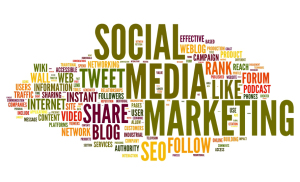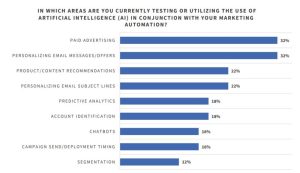By Ruth Zive
As we come to the end of a year marked by hype and turmoil, it’s becoming more and more clear that artificial intelligence isn’t magic. No amount of holiday wishing will suddenly give AI the power to put the perfect gift under the Christmas tree—or fuel meaningful automated experiences all eight nights of Hanukkah.
But that doesn’t mean AI and automation can’t make the holidays a little brighter for businesses. In fact, the areas where AI has proven to have the most impact—like getting people what they need faster and more efficiently—are especially relevant during the chaotic holiday season. Research shows that the vast majority of consumers agree with this point of view. Based on LivePerson’s recent survey of more than 1,000 U.S. consumers, 95% would prefer to message with an AI chatbot if their hold time with a human would be more than 15 minutes.
This 95% covers basically everyone: people celebrating Christmas, Hanukkah, Kwanzaa, and Diwali; liberals and conservatives arguing at the dinner table; travelers trying to book international flights and those who prefer to stick close to home; and almost anyone else trying to make the most of the holidays.
But here’s the kicker: Only 39% of consumers say they’ve used their favorite brands’ chatbots during previous holiday shopping seasons. What would it look like if we closed the massive gap between those who say they want to engage with AI and those who actually have?
The opportunities
As I see it, there are two main opportunities here. First, we need to give our workforces “AI elves” so they can help customers who actually need to engage with a human being. At the same time, we can give many more customers—the ones with simple requests or issues—the ability to become “self-serve Santas,” getting what they need through fully automated experiences.
Let’s run through a holiday season scenario without AI elves and self-service Santas. Consider this: You run the contact center at a telecommunications brand. A customer calls at midnight on Christmas Eve, looking to set up the new iPhone so it’s ready when their spouse opens gifts in the morning. The customer waits on hold for 30 minutes because your agents are busy tracking inquiries, thanks to the latest natural disaster or Suez Canal blockage. Your customer hangs up, goes to bed, and on Christmas day fights with their spouse because their spouse is trying to prepare dinner for the in-laws while setting up their new phone at the same time.
Now let’s adjust the scenario with a better digital and AI strategy in place. Your customer calls with the same issue and is greeted by a voice AI concierge. It lets them know that the next human agent won’t be available for 30 minutes, but they can bypass the hold time by going straight into a messaging conversation with an agent instead. Your customer opts in.
As the conversation opens up on their phone, AI elves automatically give the messaging agent a summary of the customer’s past interactions with your brand, as well as suggested language about the iPhone-related query that they can take or leave. Meanwhile, chatbots are efficiently handling shipping inquiries—turning many customers into self-service Santas who have no need for your human agents. More people go to bed happy and have a seamless experience with your brand. I think even Ebenezer Scrooge would be willing to invest!
AI chatbots help in multiple industries
Of course, the benefits of AI elves and self-service Santas aren’t limited to wireless providers. Any business leader expecting a large volume of customer contact can think about how they’d leverage AI to help more people in efficient and effective ways—including shifting conversations from expensive and frustrating channels like phone calls to more efficient, customer-friendly ones like messaging.
It’s not hard to imagine how to adjust the scenarios above for different industries, like a retailer trying to help a customer with last-minute advice on the perfect gift for a friend. In fact, the survey data shows that 74% of consumers feel AI makes holiday shopping more convenient, 61% say it makes it more interesting, and 58% feel it makes shopping more creative. And the impact on the travel industry could be massive as well. Anyone who has waited on hold to rebook travel the day before Thanksgiving can relate.
Let’s face it: During the holidays, most of us need as much help as we can get. Even Santa has helpers. This year, advancements in AI present a huge opportunity for brands: putting AI elves and self-service Santas to work so they can generate better outcomes for all. Business leaders who act on this opportunity will be well-positioned to have a happy and productive holiday season.
Ruth Zive is chief marketing officer at LivePerson and host of the Generation AI podcast.
(6)
Report Post








